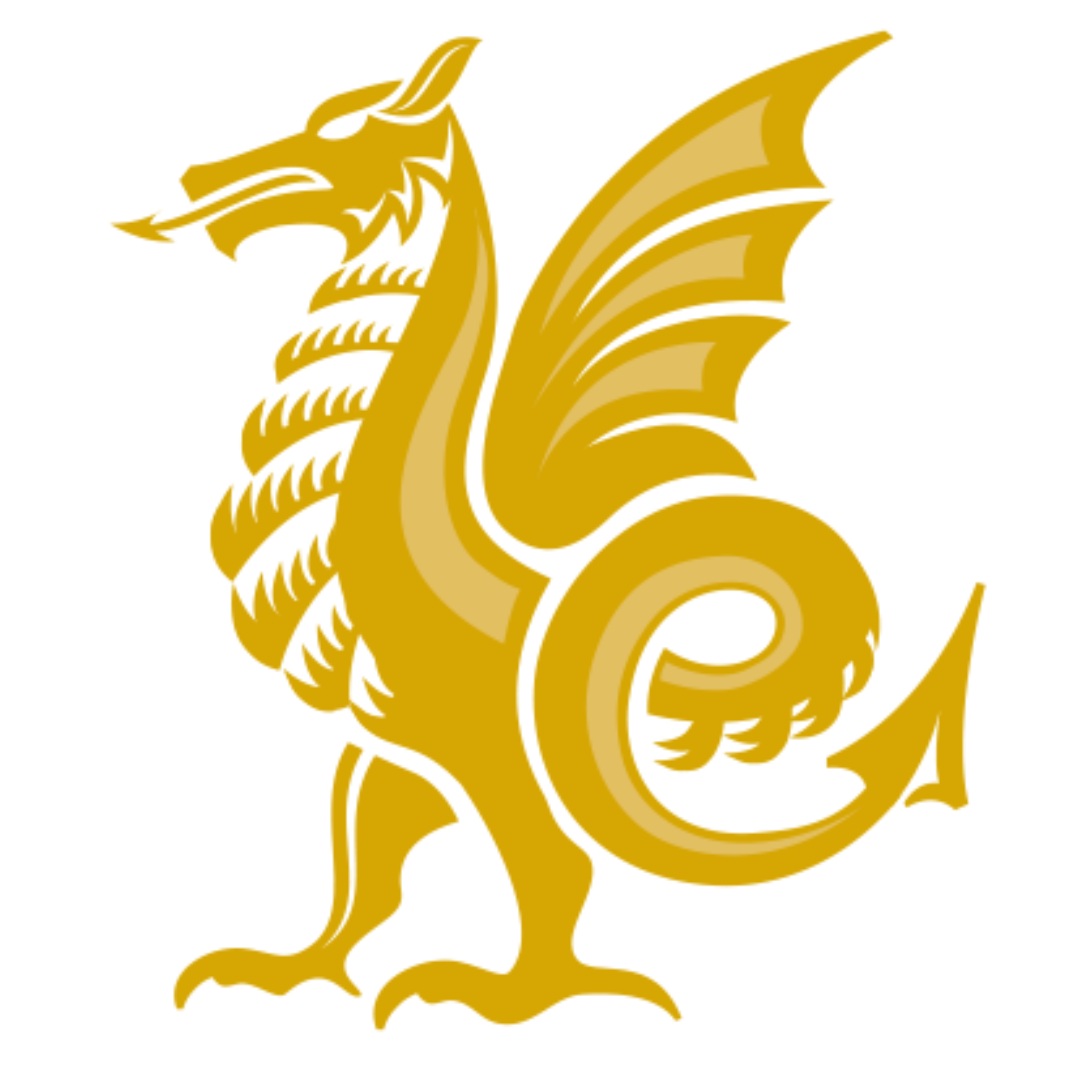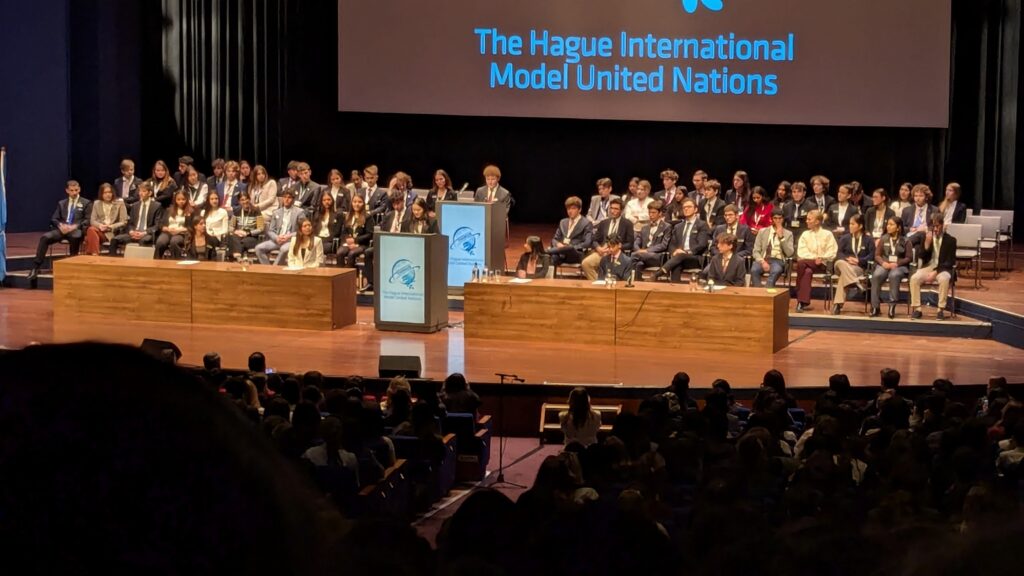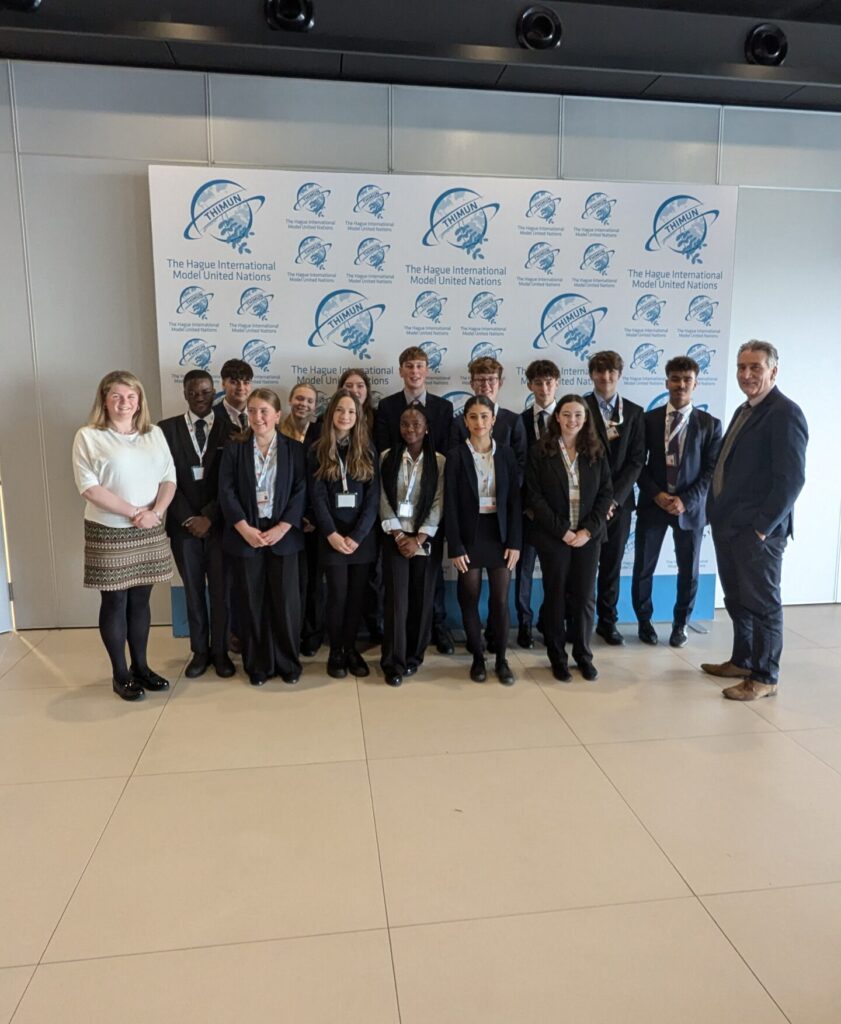Last week saw Queen’s’ inaugural trip to The Hague International Model United Nations (THIMUN) conference. The MUN team have travelled, over the last few years, to a wide variety of conferences here in the UK and developed our own Queen’s MUN conference. As a result, they decided to apply to THIMUN and were successful in that application.
After a short hop to Amsterdam, the group made their way to The Hague which is an international centre of diplomacy. The sight of the International Court of Justice, the International Criminal Court as well as numerous embassies brought home to us quite how central The Hague is to international relations.
They knew that it would be a large conference but were somewhat shocked at the sheer numbers involved; there were some 3,200 students from every corner of the globe all convening to debate global issues, which this year centred on the use of Artificial Intelligence. The 14 students from Queen’s represented Montenegro and The World Health Organisation in these discussions and debates.
There were committees of around 150 students and the students had to lobby, negotiate, collaborate and debate draft resolutions on a variety of topics. The level of lobbying and negotiations reached heights that they had not experienced before; they sat around in groups pulling resolutions apart in order to reach agreements that they were happy with before submitting them for full debate. In doing so, they met an extraordinary range of fellow students who had come to The Hague from Uruguay, El Salvador, Australia, South Korea and the Democratic Republic of the Congo to name just a few.
The skills that they had learned from previous MUN conferences were developed even further on this trip to The Hague. The pupils shared thoughts and experiences on important global issues that continue to affect us all and had the chance to deliver ways and methods to solve those problems. Perhaps what was most surprising, was the fact that the resolutions that they drafted, were being sent to the United Nations themselves for them to peruse and consider. This felt as though the pupils were having a direct influence on the world that we live in.
As well as the debate, the group had an amazing opportunity to meet and make friends from all over the world; they shared ideas, managed to navigate the somewhat chaotic system of trams, bikes and cars who all share the same roadways but most importantly, the pupils had the most unforgettable experience to think about and collaborate with fellow students in discussing ways forward as global citizens.






















